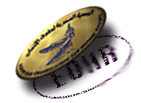
This document is published online by Derechos Human Rights. Derechos works against violations to human rights and humanitarian law all over the world.

The Egyptian Organization for Human Rights
PRESS
RELEASE
Two years imprisonment for journalists |
14 August 1999 Two years imprisonment for journalists The Egyptian Organization for Human Rights (EOHR) is seriously concerned at the rulings issued by the South Cairo Criminal Court today, 14 August, in the case brought by Minister of Agriculture and Deputy Prime Minister Yussef Wali against four Al-Shaab newspaper. Three journalists Magdi Ahmed Hussein, editor-in-chief of Al-Shaab newspaper and Board member of the Journalists' Syndicate, Salah Bedewi, and Essam Hanafi, caricaturist received terms of imprisonment for two years and LE20,000 fines, while Adel Hussein journalist and secretary general of Al-Amal political party received a LE20,000 fine. In addition, all of them were ordered to pay the claimant 501LE as damages. The case began on 1 April 1999, when Minister Yussef Wali filed complaint to the General Prosecutor accusing the journalists of slandering him in a campaign raised by Al-Shaab newspaper. After questioning the four journalists, the Prosecutor decided to refer them to the criminal court on charges of libel and slander of a government official. The first hearing was held on 15 May. Although EOHR's stance is to respect all judicial verdicts, it strongly condemns the use of imprisonment penalties against journalists in publication and opinion cases. Past rulings by the Supreme Court have argued that the lives of governmental officials are of public interest, thus any political criticism directed at them is acceptable on grounds that it tackles subjects of concern for the society and which have an impact on its future, security and independence. In this respect, in 1926 the Supreme Court acquitted a journalist accused of slandering the Prime Minister for describing him as "illiterate, short-sighted and lacking sensibility." Also, the same journalist accused the parliamentary deputies of being "degenerate, immoral and greedy." The Supreme Court considered the journalist's statements as acceptable criticism and stated that even though the terms used were harsh, they were used as exaggerations to describe actions. EOHR is gravely concerned about this ruling and draws attention to the need to review the legal framework governing the press in Egypt in order to cancel all freedom-restricting penalties in cases of opinion and publication included in Chapter 14 of the Penal Code. EOHR advocates the use of fines only, especially that the claimant has the right to respond in the same newspaper, and to file a case for appropriate civil damages before the civil courts in case it is confirmed that the journalists violated the Code of Conduct of the journalistic profession. Finally, EOHR considers that the use of freedom-restricting penalties will impose further restrictions on journalists' freedom and on their right to exercise acceptable criticism, which constitutes one of the main guarantees of press freedom.
